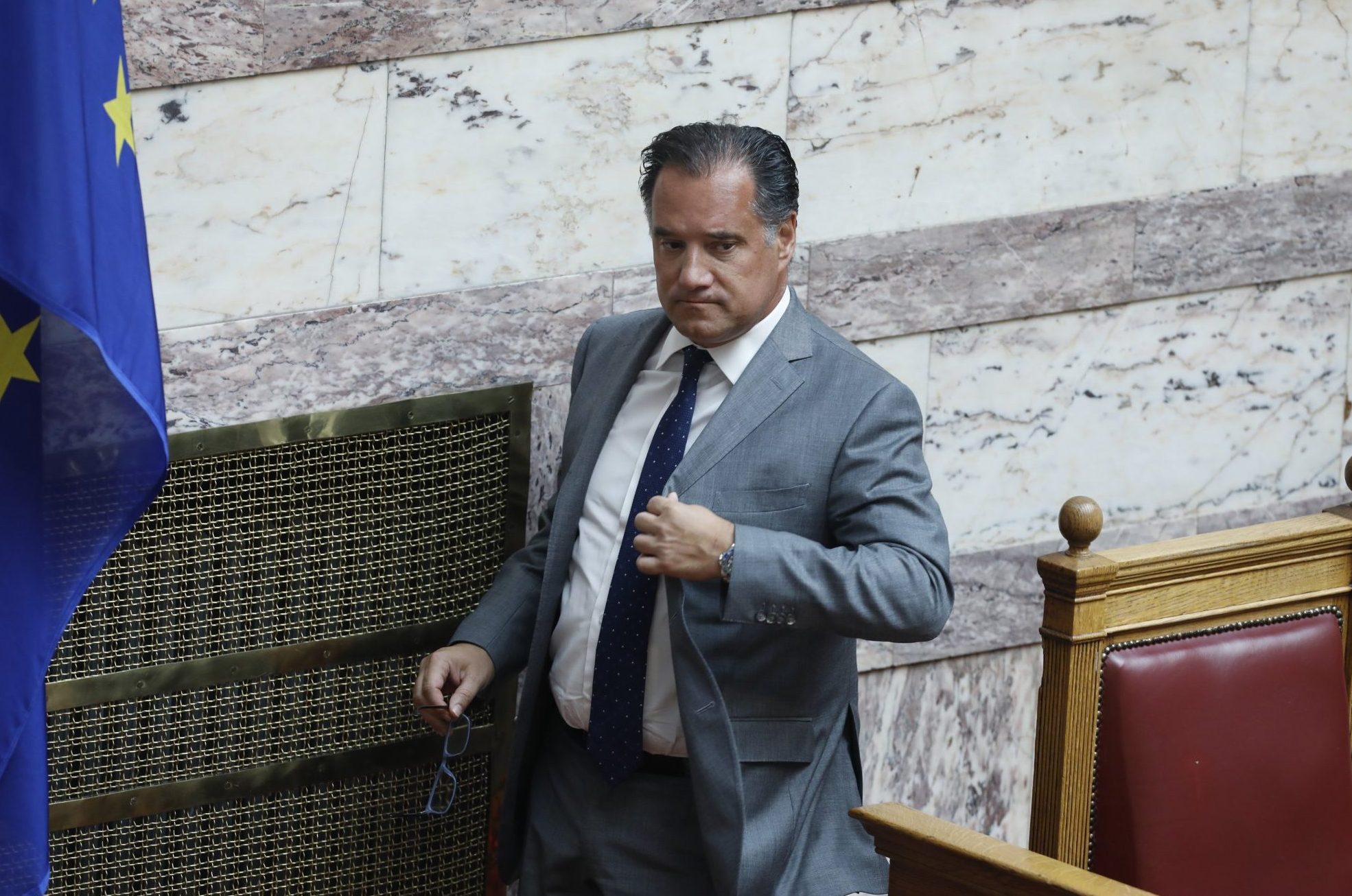It seems the Greek Minister of Health Adonis Georgiadis has gradually imbibed a skewed understanding of the concept of a citizen’s right to privacy in a democratic society in his attempt to cover for a wiretapping scandal that has rocked the political scene in Greece for the past two years.
In a somewhat bizarre post on his “X” account (formerly Twitter), responding to one of the victims of the illegal surveillance, journalist Thanasis Koukakis, the Minister casually dismissed him writing “You are becoming tiresome obsessing over the issue. Get over it”!
“OK, so your mobile phone was being surveilled and you are sad. They said my phone was also tapped. So what? I did not break a sweat, ” Georgiadis went on.
Justifying his reply, the Health Minister said that legal surveillance of state secret services was a common practice in the modern world, especially with the ease provided via mobile devices.
«…το ποιος και εάν μου παρακολουθούσε κάποιος το τηλ, μου είναι αδιάφορο διότι δεν έχω και τίποτε να κρύψω!» Ο @AdonisGeorgiadi για την στόχευσή του με Predator 11 φορές, ενώ έφερε και εξακολουθεί να φέρει κρατικό αξίωμα. Αδιάφορος για την παρακολούθησή του… Απλά τα πράγματα https://t.co/4bqUU1VMHH
— Thanasis Koukakis (@nasoskook) August 8, 2024
“Only a naïve person would be shocked, if they were in my position and had my level of publicity, to learn that their phone is being monitored. To be honest, I would be genuinely shocked if I found out that no one had ever surveilled my phone. This has become so commonplace that, wherever you go around the globe, in serious meetings, everyone, from all countries, leaves their mobile phones outside. Not even just turned off, but outside. Unfortunately, modern technology facilitates such actions much more compared to the past. Bad? Yes. Criminal? Yes. But absolutely commonplace.”
Greek Minister Georgiadis stressed that the Greek judicial system via the country’s Supreme Court (Council of State) had settled the high-profile matter – a 300-page report of the Supreme Court claimed that the controversial hacks were coincidental to state surveillance operations by the Greek National Secret Services (EYP), and state services or officials could not be held responsible for the spyware intrusions, shelving the case – and, therefore, constantly harping on the issue was a waste of time.
Even if one were to accept the premise of the Greek Minister’s reply to Koukakis, namely that first of all surveillance is commonplace nowadays, and secondly, that the matter had been put to rest through the judicial system – an issue that generated great backlash on the part of the country’s opposition parties which unsuccessfully tried to open a debate at a special investigative parliamentary committee – the fact that a top Minister casually accepts surveillance as a matter of fact should be a sign of concern for a so-called democratic society.
After the Supreme Court shelved the case, opposition parties questioned the judicial independence, calling it a “day of shame” for Greece.
The espionage scandal, dubbed “Predatorgate”, due to the use of the homonymous spyware, started in 2022 and involved eavesdropping on politicians, journalists, and judges, as well as the export of the shadowy software to dictatorial regimes and high-profile resignations, including the head of the Greek National Intelligence Services (EYP), Panagiotis Kontoleon and the Prime Minister’s nephew and former secretary Grigoris Dimitriadis.
The scandal was revealed in August 2022 when it was found that socialist leader Nikos Androulakis, a former member of the European Parliament had fallen victim to an attempt to plant the Predator spyware on his mobile device.
Shortly after, it also came to light that the government led by the conservative New Democracy party had tapped Androulakis’ phone with lawful state surveillance tools.
More information started seeing the light, with journalists and the independent privacy watchdog ADAE uncovering how the National Intelligence Service (EYP) had been surveilling a list of journalists and politicians — including half the government Cabinet (Minister Georgiadis himself among them). Predator spyware was being planted on the phones of some of them simultaneously.
The issue drew international media attention, while the European Parliament also closely followed the matter passing a damning resolution related to freedom of the press and journalists’ safety in Greece.
In the report, the European Parliament condemned the exploitation of “threats to national security” to monitor political opponents, including MEPs.
MEPs demanded that democratic safeguards be reinforced, while also calling for effective investigations with the assistance of Europol.



